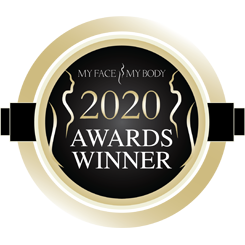Using the power of innovative science and modern technology, Dr SW Clinic can help you live your best pain-free life without the need for invasive surgery.
Achilles tendinopathy, also known as Achilles tendonitis, is a common condition that affects the Achilles tendon, which is the largest and strongest tendon in the human body.
The Achilles tendon connects the calf muscles (the gastrocnemius and soleus) to the heel bone (the calcaneus).
Achilles tendinopathy is characterised by pain, stiffness, and inflammation in the Achilles tendon and is typically related to overuse or repetitive strain.
At Dr SW Clinics, we can treat a range of pain conditions using Regenerative Medicine and pain-relieving injections. If you are tired of living with pain and looking for a non-surgical intervention, then Dr SW Clinics could help you get back to your optimal quality of life.
Treatment cost
Price From* After consultation the doctor will confirm the cost.
Treatment Summary at a glance
Pain reliving injections take no more than 20 minutes.
Every treatment plan is tailored to each patient. The number of treatment sessions will vary accordingly.
Local
How can we help you?
At Dr SW Clinics, the Capital of Regenerative Medicine and Wellbeing, we have successfully treated thousands of patients with globally recognised, evidence based, Regenerative Medicine. Dr. Sherif Wakil and his team of qualified health professionals will assess which injection therapy is best for you following an initial consultation.
We may require a diagnostic ultrasound, x-ray or MRI depending on which injection therapy your Consultant thinks will aid you the most.
We offer interest FREE finance plans to patients. Please contact our experienced team to learn more.
FAQ's
- Overuse or Repetitive Strain: Achilles tendinopathy often develops as a result of overuse or repetitive activities that put stress on the tendon. This can include activities like running, jumping, or excessive walking.
- Tight Calf Muscles: Tight calf muscles can increase the strain on the Achilles tendon and contribute to the development of tendinopathy.
- Improper Footwear: Wearing shoes with inadequate support or improper fit can increase the risk of Achilles tendinopathy.
- Sudden Increase in Activity: A rapid increase in the intensity or duration of physical activities, such as sports training or exercise routines, can stress the Achilles tendon and lead to injury.
- Age: Tendons naturally lose some elasticity and strength with age, making older individuals more susceptible to Achilles tendinopathy.
- The primary symptom of Achilles tendinopathy is pain and tenderness in the Achilles tendon, typically near the heel or above the heel.
- Pain may be mild to severe and is often worse in the morning or after periods of rest.
- Stiffness and swelling around the affected area.
- Gradual loss of strength and flexibility in the calf and ankle.
Depending on the joint issue you present with, there may be a couple of ways to diagnose your pain and thereby find you a lasting solution.
Firstly, you will have a telephone consultation with one of our highly trained patient advisors. This patient advisor will ask you a series of pre-assessment questions to
better understand your personal needs.
You will then be invited for a consultation with one of our leading experts. To better gain an understanding of the problem, the Consultant may suggest you receive an x-ray or an MRI.
What is an x-ray?
A diagnostic test that can help identify what issues are causing the pain.
What is an MRI?
A diagnostic test using a magnetic field and radio waves for a detailed image of both joint and soft tissue.
What is an ultrasound?
Typically a handheld device that provides an on the spot image of the soft tissue.
Once we’ve received the results of your diagnostic tests, our team will be able to advise you on next best steps to get you pain free.
Dr SW Clinics






